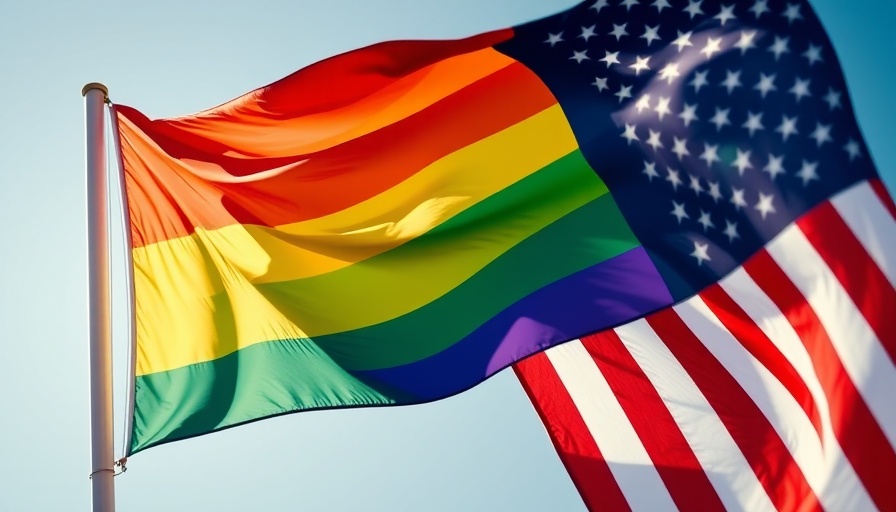
Canceling Progress: An Overview of Canceled LGBTQ Health Research Grants
In a bold move that has drawn widespread concern, the Trump administration recently canceled at least 68 grants aimed at studying health issues affecting LGBTQ populations. The financial implications of this sudden decision are profound, with nearly $40 million in funds for research focused on critical areas such as HIV prevention, cancer risks, and youth mental health abruptly cut. This underscores a troubling trend of prioritizing what the government deems 'ideologically driven' over scientifically vital research.
The Significance of LGBTQ Health Research
As stated by health experts, research focused on the LGBTQ community contributes vital insights that can benefit the broader population. Experts like Simon Rosser from the University of Minnesota express the gravity of the loss, indicating that this cancellation not only stunts immediate scientific exploration but also threatens the long-term health outcomes of individuals across the board. The canceled research projects had already yielded critical findings—some resulting in published works that improved healthcare practices for LGBTQ individuals.
Impact on Young Researchers and Future of LGBTQ Studies
With the halting of these projects, many emerging researchers find their careers at risk. Tara McKay, whose grant was among those canceled, highlights the detrimental impact this has on the evolving field of LGBTQ health research. Without funding, promising studies that could enhance understanding and treatment of prevalent health concerns within this community are left in limbo.
Public Health Ramifications of Cutting LGBTQ Research
The implications of cutting LGBTQ health research extend beyond academic circles—they resonate within the community and affect overall public health. By neglecting the unique health and wellness challenges faced by LGBTQ individuals, the government risks perpetuating misinformation and inadequate healthcare services. This could lead to increased health disparities and poorer health outcomes for a population already facing systemic barriers.
Claims of Unscientific Research: A Deepening Divide
Agencies associated with Health and Human Services justified the cancellations citing that the work was considered "unscientific." Such claims have been met with resistance and frustration from researchers who advocate for the integration of diverse perspectives in scientific inquiry. McKay captures the sentiment of many by noting that claiming no benefit to society from LGBTQ health studies neglects the realities of a significant portion of the American population. Queer and trans individuals are part of the fabric of American society, and their health should be a priority.
A Call for Awareness and Action
As the debate around health equity continues, community members in Davenport, Polk County, and Central Florida are encouraged to engage in discussions about the importance of inclusive health research. Awareness can lead to advocacy for funding and support for LGBTQ health studies, ensuring that all voices in the community are represented. The cancellation of research grants should not signify an end, but rather spark a movement toward increased awareness and action.
Conclusion: What Can You Do?
The cancellation of these grants serves as a critical reminder of the importance of inclusive healthcare research. As community members, it is essential to remain informed and active in discussions about health policies affecting LGBTQ individuals. By advocating for continued support and funding for health research, you can contribute to a future that recognizes the value of all members of society in health discussions.
Engage with local advocacy groups and participate in community forums dedicated to promoting equitable healthcare. Together, we can influence policy and ensure that health research addresses the needs of all individuals.
 Add Row
Add Row  Add
Add 






Write A Comment